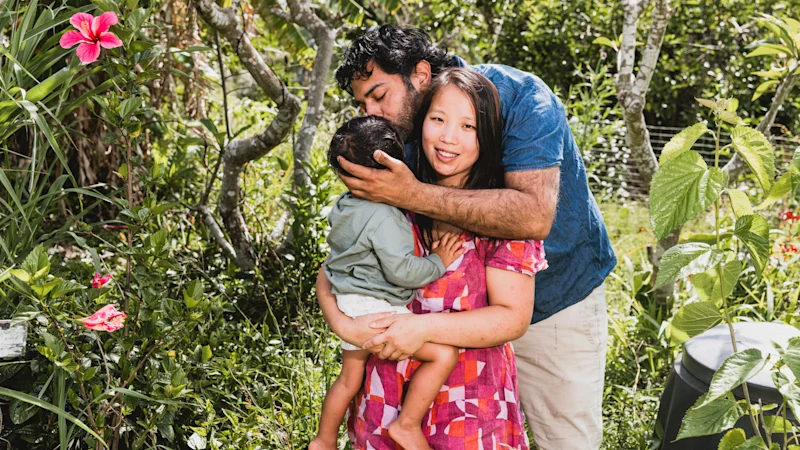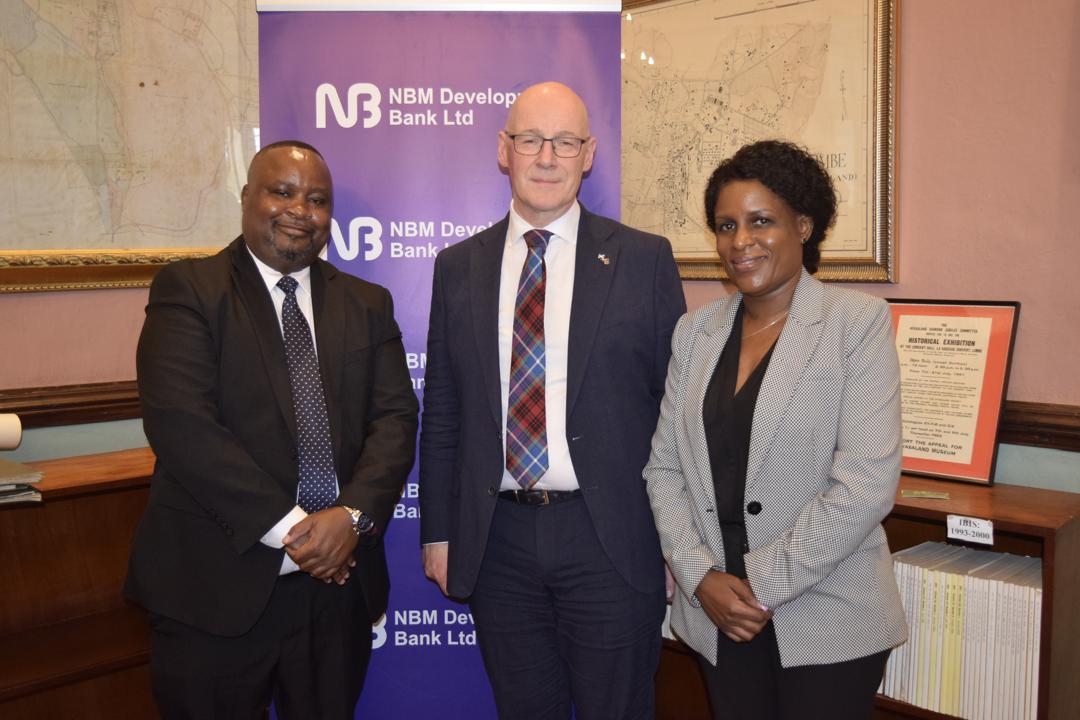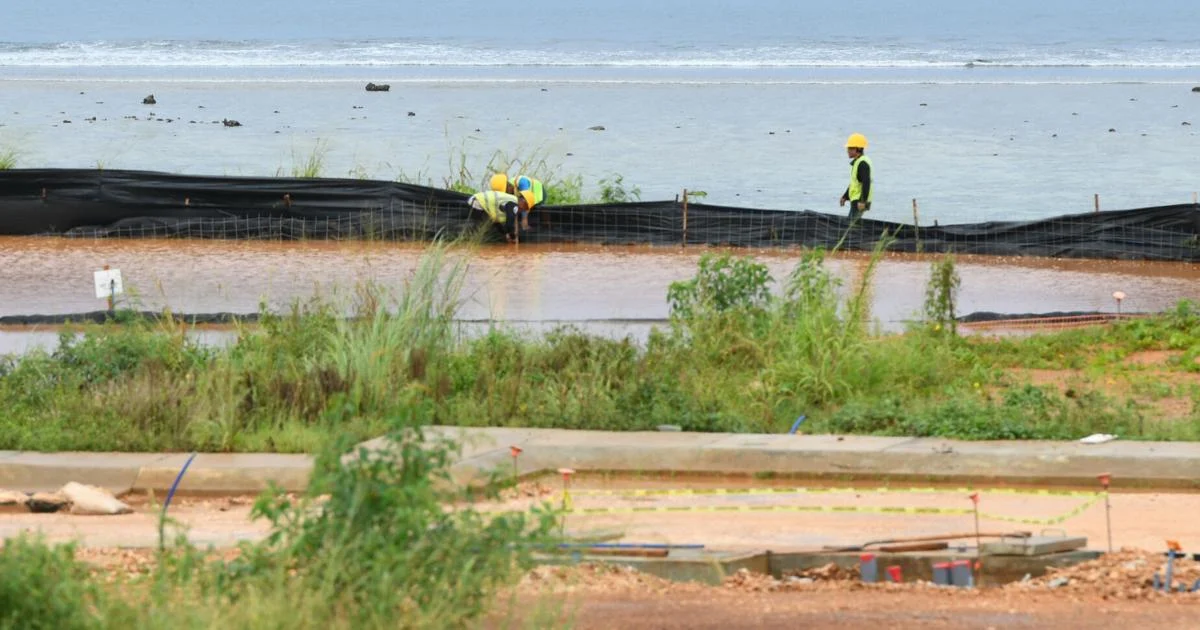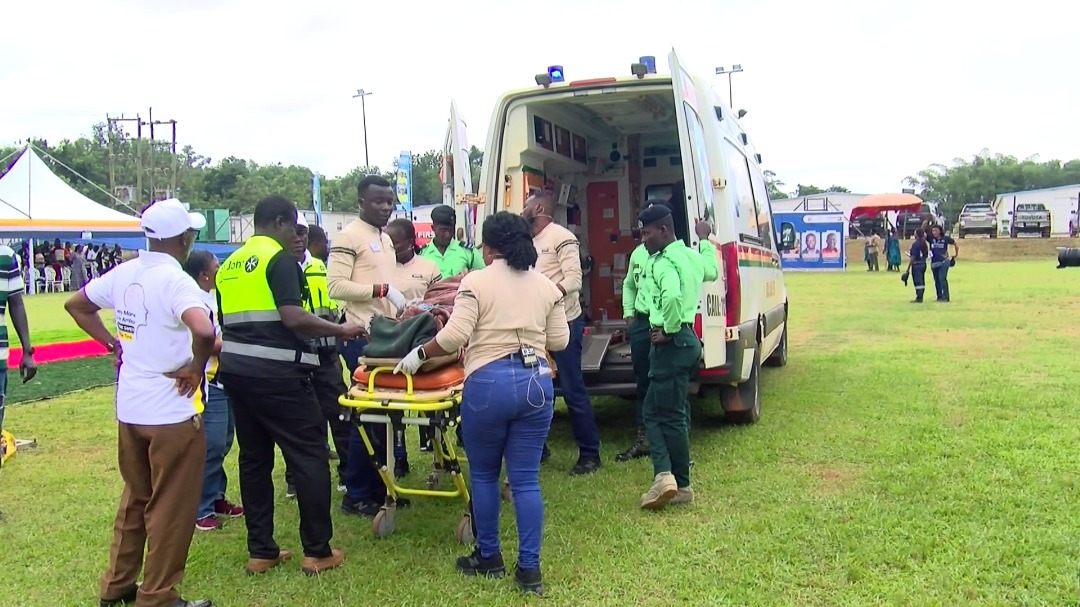Copyright brisbanetimes

Through interviews with mothers, doulas, midwives, experts and obstetricians around the country, many have defended women’s autonomy while raising concerns about doulas acting beyond the traditional role as “mothers’ servant” to providing unqualified clinical advice during freebirths leading to dangerous consequences. Many are also concerned with the creeping radicalisation of the online freebirth world in the post-COVID landscape, where hospitals are demonised no matter the circumstance. “What I’m seeing with freebirth is it’s becoming quite glorified,” a freebirth mother told a recent podcast. “And in its glorification process, babies are dying.” This masthead reported this week that Victoria and NSW are considering legislation to introduce jail terms for doulas who provide clinical tasks during home births, after letters from obstetrician and midwife peak bodies raised the alarm. This proposal has been rejected by a coalition of maternity advocates, including University of Sydney’s childbirth rights lawyer Dr Bashi Kumar Hazard, who said regulating doulas undermined women’s choices and punitive laws will only drive women further away from the hospital system. “The answer is not to coerce those women even more. It’s not going to work,” she said. “What happens is those women don’t come back. They would rather take the risk of dying themselves than go to the hospital.” ‘A lot of mistrust’ Midwife turned researcher Hazel Keedle completed a PhD at Western Sydney University and published one of the largest surveys in the world about mothers’ experiences of birth trauma. The survey found one-in-three women reported experiencing birth trauma, and one-in-10 had suffered obstetric violence – a controversial term encapsulating mistreatment, coercion and denial of informed consent during birth. She said concerns arise from a “cascade of intervention” where under-resourced, risk-averse or profit-driven hospitals push women into having births according to guidelines that favour faster births through inducement and caesareans. These interventions, Keedle says, can leave women feeling disempowered, injured from over-use of tools like forceps, or with psychological scars that can fuel post-natal depression. She said there is misinformation in hospitals, and the freebirth world. “When women have gone through the system, they’re not happy with how it went. Women should give birth where they want to,” says Keedle. “But has she made an informed choice? Is she making the right choice?” Obstetrician Vinay Rane said about one-third of women would die in childbirth without hospitals and questioned the language used by freebirth advocates. “We never call popping a stent into someone’s heart so they don’t have a heart attack an ‘intervention’, we call that ‘treatment’,” he said. “When complications in birth arise, they arise quickly.” He accepted there was a low tolerance for risk in hospitals, but said safety drove all clinical decisions. “Would I do a thousand caesars in order to prevent one baby dying? I probably would say yeah I would. Because the fall-out for the individual family – it’s God’s cruelest trick.” The NSW government last year published its report after an inquiry on birth trauma, which received more than 4000 submissions and made 43 recommendations around improving continuity of care and increasing consent to invasive procedures during birth. Inquiry chair Emma Hurst said freebirths were not a focus of the inquiry, but the committee heard evidence of women choosing to freebirth after home-birth midwives were blocked from attending the hospital in emergencies. “So they would suddenly have this whole new medical team,” Hurst said. “There was hesitation to go to hospitals because of that.” Backlash to the healthcare system following the pandemic, combined with the rising consciousness of birth trauma, has increased the popularity of giving birth outside the hospital system. Homebirthing has been long supported by public hospitals through formal programs as the healthcare industry recognises the importance of giving women autonomy over their births, and relieving under-resourced emergency wards. Such programs approve homebirths for low-risk pregnancies and require two midwives to monitor for complications and arrange for transfer to hospital in emergencies, but are restrained by strict criteria and limited funding. Separately, freebirths have also increased in popularity – where women give birth at home without midwives, often with the support of a doula or just their partners. Some mothers choose to freebirth if they are not eligible for homebirth programs and cannot afford private midwives, costing north of $6000. Others reject mainstream medicine altogether, based on negative experiences or distrust of doctors. Across interviews with several women who had freebirths, many women place importance on following natural instincts and view birth as an ancient practice rather than a medical event, describing the experience as “primal”, “transformative”, “beautiful” and “spiritual”. “I have a bit of fear around hospitals and the whole business of the medical industry,” said Sunshine Coast mother Jess Walker, who freebirthed her child. “You’re bringing in a new life here. It’s more than just the mechanics of the body.” There is also fear among these mothers that the medical system monitors pregnant women too closely to avoid negligence litigation or regulatory action, which drives unnecessary and invasive procedures. “The hospital system has a way to go to shift the way it treats birth and women,” freebirth mother Brooke said. “I do believe midwives and many doctors have good intentions, but they see problems and how to fix them.” Many freebirthers create strict plans for their pregnancy and birth, which often excludes scans, medications, caesareans, vaginal examinations or investigations and interventions of any sort – and treat hospital admission as a last resort. Walker said she was so terrified of hospitals during her freebirth at the height of the pandemic she would have preferred to die from blood loss than call an ambulance. “I told my partner not to interfere. If this is my time to go, this is my time to go,” she said. “Now that I’ve had my daughter, my perspective has changed. That martyr mindset of I’m willing to die is not stupid, it’s idiotic.” Some freebirthers take courses to prepare for birth complications, such as learning how to complete CPR for babies, or completing online modules about labour offered by the cottage industry of birthing companies. Registered midwife and doula Denise Love has been training doulas for decades and said she has noticed a cultural shift among the latest crop of doulas towards advocating against the healthcare system. “I’m very aware that we have different doulas on earth now,” Love says. “Unfortunately, it’s becoming very pro-natural birth rather than standing beside a woman.” Love says that rather than asking women where and how they would like to give birth, modern doulas are pushing their own views to keep women at home. “I am concerned, and sometimes think, ‘Are doulas becoming just another intervention?’” Love is sceptical about younger doulas who want to build online profiles using social media with hardline stances. However, she also repeated some of the unproven claims laundered by these communities, linking dopplers to autism. “We have to look at the changes in babies’ brains right now,” she said. “I’m not saying they cause neurodivergent children, but I’m saying, what if they do?” Love says parents are quick to blame others when things go wrong in birth, but she encourages parents to take responsibility over risks in any setting. “Babies die,” she said. “We can’t rescue all babies.” ‘Spiritual badge of honour’ The Free Birth Society is one of many online communities where women exchange tips and support for those who choose to deliver babies outside the hospital system. “No one has to opt into the medical system,” the group posted on social media this week. “People choose to do so. Just like other people choose not to.” Originating in America, the group sells online courses and one-on-one services to women around the world, including Australia, about how to give birth at home. One obstetrician at a major Victorian hospital said these groups often sell birthing instructions based on individual or anecdotal experiences, which leads to ill-informed generalisations. He is concerned these groups present the risk of postpartum haemorrhages as “ridiculously downplayed” and also says there is “zero evidence” to support claims that dopplers cause harm to infant health. “There’s only a certain amount you can do,” he said. “That is the problem with social media. It’s a self-fulfilling algorithm saying it’s all beautiful.” He said governments needed to launch public education campaigns and bolster the hospital-led homebirth programs, like those at Western Health and Sunshine Hospital in Melbourne, which had been “extremely successful”. “Homebirth and freebirth are not remotely the same thing. Has there been a rise in freebirth? Absolutely definitely,” he said. “The approach needs to be around education and understanding risk.” Concerns about increasing radicalisation of freebirths, where midwives are called “medwives” as a derogatory term and going to hospital is viewed as “against God”, are also shared within the community. One mother who lives in regional Victoria, who could not be named because they work for the government, said pregnant women were often isolated, vulnerable and looking for community online. “When you have a baby at home, there’s so much time sitting around, feeding them, on your phone,” she said. “You start following a few mum influencers and it descends into these incredibly small spaces online of extremist thinking.” She said some corners of the freebirth community blend with “trad-wife”, extreme Christian and conspiratorial ideals that “can get really, really toxic, and really competitive” and where any involvement from the hospital is portrayed as weakness. “Too easily it falls into dogma,” she said. “If you freebirth you’ve overcome your own demons, it becomes this badge of spiritual honour that you are able to do it and overcome your own limitations.” The woman had planned to freebirth but went to hospital after discovering her baby was in breech position, and was ridiculed online by the freebirth community. “They were like, well, that’s a failure,” she said. These concerns are echoed in an online group with more than 2800 followers called ‘Free Birth Society Scam’ that was launched last year to draw attention to the “mind control, culty atmosphere and rigid dogma” of the group. “I am very empathetic and supportive of freebirth,” one organiser wrote, but criticised the “terrible information that can result (and has resulted) in babies dying, with major injuries, and mothers who have almost died”. “Your future children are far too important to leave their births entirely to chance.” ‘Manslaughter’ The Northern Rivers in northern NSW has long been the home for freebirthers, since the 1970s, where non-clinical births have been promoted and celebrated through community organisations. One midwife working in a major hospital in the area, who could not be named because they work for the government, said there has been an uptick in “sovereign births” since COVID-19. “It’s freebirthing but to the extreme,” they said. “There’s quite a high disregard for the welfare of the infant.” The midwife said the hospital sees women presenting to the emergency department after these births go wrong about once a month. “Birth is traumatic and dangerous,” they said. “When it goes wrong, it goes horribly wrong.” They provided two recent examples, including a baby born near Lismore after a two-day labour. “By the time they came in, the baby was very flat. The baby had to be flown to hospital, put the brain on ice, and anyway the outcome for that baby was that he’s a poor little vegetable – he’s got brain damage and needs to be suctioned every hour or so.” “To be honest, he would have been better off dying because the quality of life is awful for everybody.” The midwife described another case where a freebirth in Wilsons Creek was attended to by a doula but had to be medically evacuated by a helicopter. “He survived for about 12 hours or so before anybody called an ambulance,” they said. “By the time the paramedics arrived, he was gasping for breath and then he passed away before he even got to the hospital.” “The public interest is more about their [mothers] human right and their right to choose, which I do support when it’s safe,” she said. “They all want natural births, they don’t want to hear what goes wrong.” In Victoria, another midwife interviewed by this masthead said there has been an increase in women presenting to hospital after freebirths armed with incorrect medical information. “Every woman’s birth story is going to be different but when you haven’t had a baby before, you don’t always identify that,” she said. “I’ve heard of some pretty awful cases where they just haven’t been given the right information.” In February, artist Lucette Romy told The Road To Wisdom podcast about her experience of freebirthing after taking a few courses online. A doula was present who gave assurances the newborn baby was healthy despite showing multiple signs of distress, including irregular breathing, gurgling noises, discoloured skin and a protruding chest. ‘I have no idea why right in that moment, I didn’t call the ambulance.’Lucette Romy, on The Road To Wisdom podcast The doula downplayed the symptoms, encouraged the parents to keep the baby warm, and ridiculed the use of oxygen masks. When the baby went “completely limp” after several hours, the parents still did not call the ambulance. “I have no idea why right in that moment, I didn’t call the ambulance,” she said. “I’d just been very reassured that like everything was pretty normal and he was perfect.” Eventually, they spoke with a doctor over the phone who told them to immediately call Triple Zero. Paramedics gave Romy instructions for CPR over the phone. “Honestly, I think that’s going to be one of the most difficult moments of my life – like trying to keep my baby alive and not being able to. And feeling like we didn’t have any support, and like, what the f--- have we just done?” By the time the paramedics arrived, the baby was “gasping for air” and died before the doctors could intervene. “I was watching his chest like really struggle to take a breath.” Three police cars, ambulances and a paramedics’ helicopter then arrived, and their home turned into a crime scene. An autopsy later discovered the baby was born with a rare and fatal genetic condition. While her baby could not have been saved, the experience made her more cautious about advice given by doulas. Police said the doula could face “negligent homicide” over delays in taking the baby to hospital, she said. “She was out of her depth that day for sure, and her advising us so many different things when there was so many things going on with him was dangerous.” After losing her baby, she revisited the online courses she took and said there was no information about the complications suffered by her child, like blue skin. She said “first-time freebirthing parents don’t know what a normal newly born baby looks like” and parents should not be afraid to go to the hospital. “There’s nothing wrong with calling an ambulance and having medical assistants come,” she said. “I would absolutely 100 per cent have rather transferred to the hospital and have an intervention to birth than have a dead child. Like there’s no question about that.” Women cannot be prosecuted for their choice of where to birth, but can face consequences if the newborn is denied medical care. Tsai said some of her friends had been contacted by the local police who have caught wind of their freebirth plans. “The police didn’t come, but they called multiple times, saying you can be charged with manslaughter if something happens to the baby,” she said. Kumar Hazard said policing will not work and the only way forward was expanding hospital-led homebirth programs, resisting demonisation of women’s choices, and improving hospital processes to rebuild trust. “Women talk. You’re not going to be able to stop that. They’re on social media, on these private pages – they talk. All you need is one or two to say, I went to his hospital and they really helped me. You get rid of doulas, the women will just go completely underground,” she said. “You can’t fix social problems with punitive legislation. That’s just a fact.” For Tsai’s part, she is sharing her story in the hope of bringing nuance to the national discussion that she says focuses only on worst-case scenarios. “I think it’d be far more sensational for there to be a controversial, ‘against all odds’ freebirth story with a positive outcome.” Make the most of your health, relationships, fitness and nutrition with our Live Well newsletter. Get it in your inbox every Monday.



